Robin Trower talks tone, Strats and soulful phrasing
In conversation with the psychedelic blues master
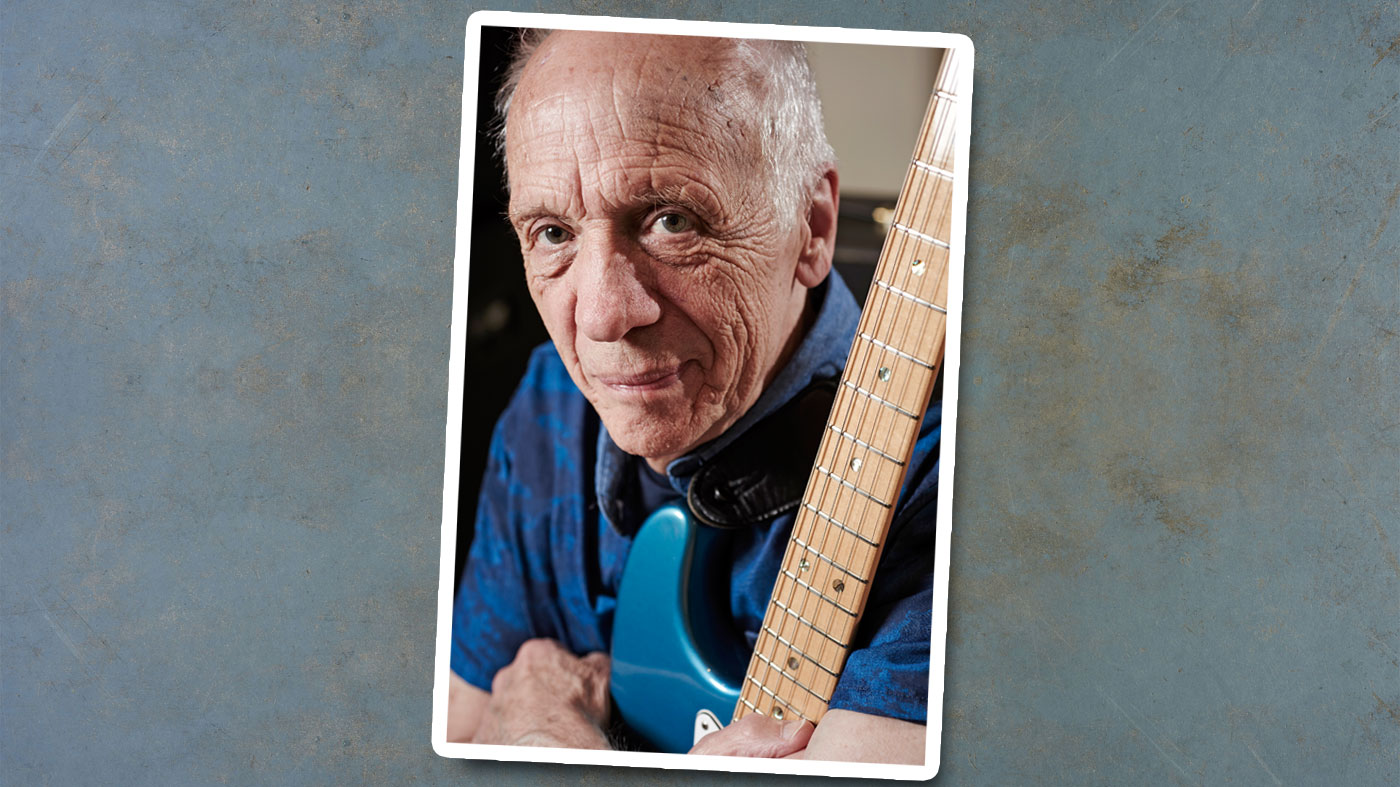
Introduction
A chance to visit Robin Trower, one of the country’s great guitar legends, in the studio where he’s laying down tracks for a forthcoming release is not something you turn down. So, we set off for a top-secret location somewhere off the M4 corridor in eager anticipation.
We ended up so far off the map that our otherwise trusty sat-nav initially failed to pinpoint Robin Trower’s exact location, but when we eventually rolled up to the studio’s car park, we were sure we were in the right place. Even with modern soundproofing, the sound of a Fender Strat with that familiar signature vibrato could still be heard echoing around the countryside.
We found Robin busy laying down tracks for his next - as yet untitled - release
Once inside, we were led into the inner sanctum to discover the machinery behind this epic sonic assault: two Marshall amps, a couple of signature Strats - and a beaming greeting from the man himself.
With his album Where You Are Going To, which was released in May this year, still ringing in the guitar world’s ears, we found Robin busy laying down tracks for his next - as yet untitled - release. He was also at the early preparation stage for this autumn’s tour, testing out a brand-new Marshall Bluesbreaker combo that had arrived in the studio just days beforehand.
After an initial look around, we settled down to talk about anything and everything, but the day found Robin in a reflective mood and our conversation quickly turned to the changes in the music industry that had occurred since his days with Procol Harum back in the 1960s…
“It’s mostly about the recording side of things - digital, and what you’re able to do. I think it’s definitely made recording a lot easier. The sound still isn’t as good as tape, but it’s just so easy to work with, I reckon it saves you a day a week. Like, I’ll play a part that the engineer will sample and repeat - it’s things like that. You can move on more quickly instead of having to play something every time in every verse. Those are the things where it really saves you a lot of time.”
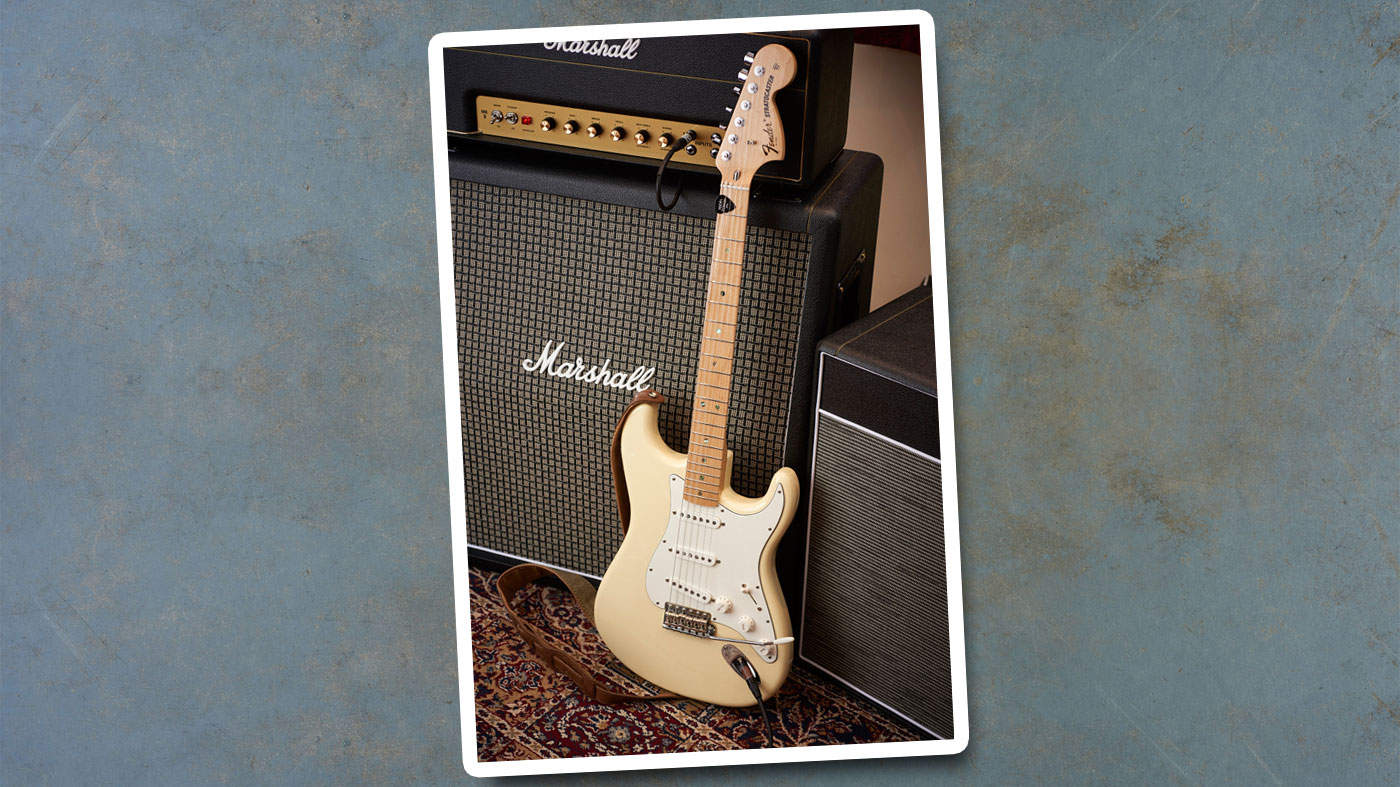
Gear for the years
So, in that respect, would you say you’re a fan of how the industry has gone over to the more digital side?
“Certainly, in terms of recording. I still don’t think it sounds as good as tape and analogue and all that, but the convenience of it is just unbelievable.
It’s still a Strat through a pedal into a Marshall and that’s it, you know?
“I mean, today I was working on something and I asked Sam, the engineer, ‘Can you swap that drum fill there with that one that comes 12 bars later?’ That’s it: changed reality. You wouldn’t be able to do that years ago; you’d have to get the drummer back in to play it again. This is a real time-saver.”
But you’re still strictly analogue in terms of the gear you’re using?
“I don’t really think my guitar sound or my approach to my guitar sound has changed at all in 40 years. It’s still a Strat… All right, it’s a slightly different Strat than I used to play then, but it’s still a Strat through a pedal into a Marshall and that’s it, you know? It hasn’t changed a lot.
“The amps that I’m playing through are really harking back to the 60s and 70s. I think maybe the 50-watt [Bluesbreaker combo] is a later Marshall, but it’s that thing about not having the preamp stage, just the volume control. Both those amps have that. I find it’s a more open sound that way and you have to crank it and you have to work them loud. I think it’s a more open sound.”
How did you get turned on to the Strat in the first place?
“I was in Procol Harum. We were on tour opening up for Jethro Tull. Martin [Barre], Jethro Tull’s guitar player, had a Strat as a spare guitar and it was on stage and at soundcheck I just picked it up. I thought, ‘I wonder what that sounds like…’ I put it into my amp and just loved it straight away, so I think I went out the next day and bought one, and that was it.”
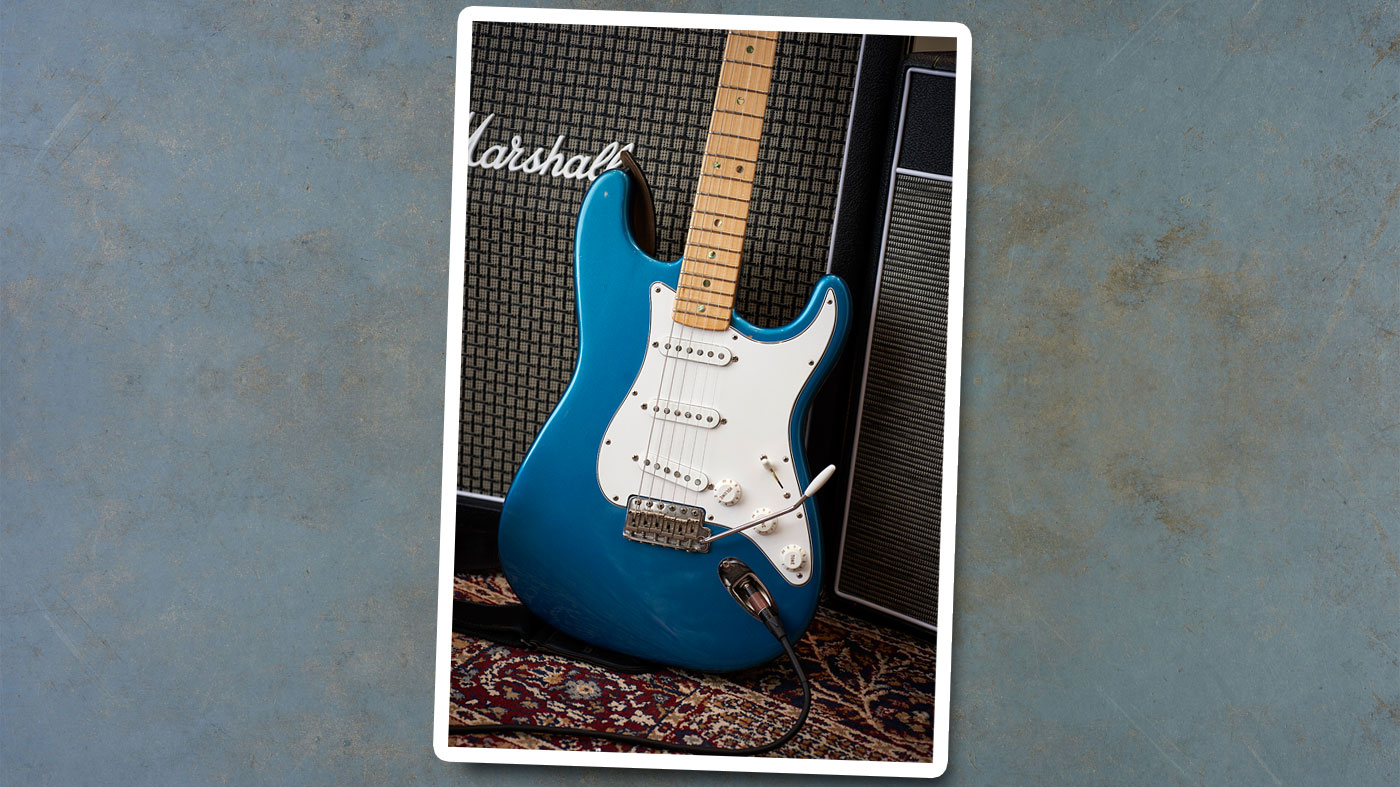
Strat's the stuff
Have you always been fond of the 70s Strat in particular?
“No. I mean, for quite a while I was playing 50s vintage stuff, but when it came to having my signature model made I had to decide what I was going to have, and with the bigger headstock, I thought you might get a bit more resonance through a bigger piece of wood.
My was a Rosetti, and I stuck a pickup on it pretty quickly and used to plug it into the back of the radio
“Things like having the jumbo frets - obviously, they weren’t on the vintage guitars - and that arrangement of pickups is unique. It’s those kind of things that I’ve chosen to put into the Strat. But the basic idea of it is no different in terms of the cast bridge pieces - that’s all part of the sound as well.”
Did you start on electric guitar or did you start with acoustic guitar?
“The first guitar I ever owned was one my dad bought me - it was an f-hole guitar, I think it was a Rosetti, and I stuck a pickup on it pretty quickly and used to plug it into the back of the radio.
“It certainly wasn’t an easy guitar to play. You can imagine, it cost £7.50 or whatever it was back then. But that’s the way you start, you know? I think the next guitar I had was a Burns-Weill solidbody. They were precursors to the Strat, in this country anyway.”
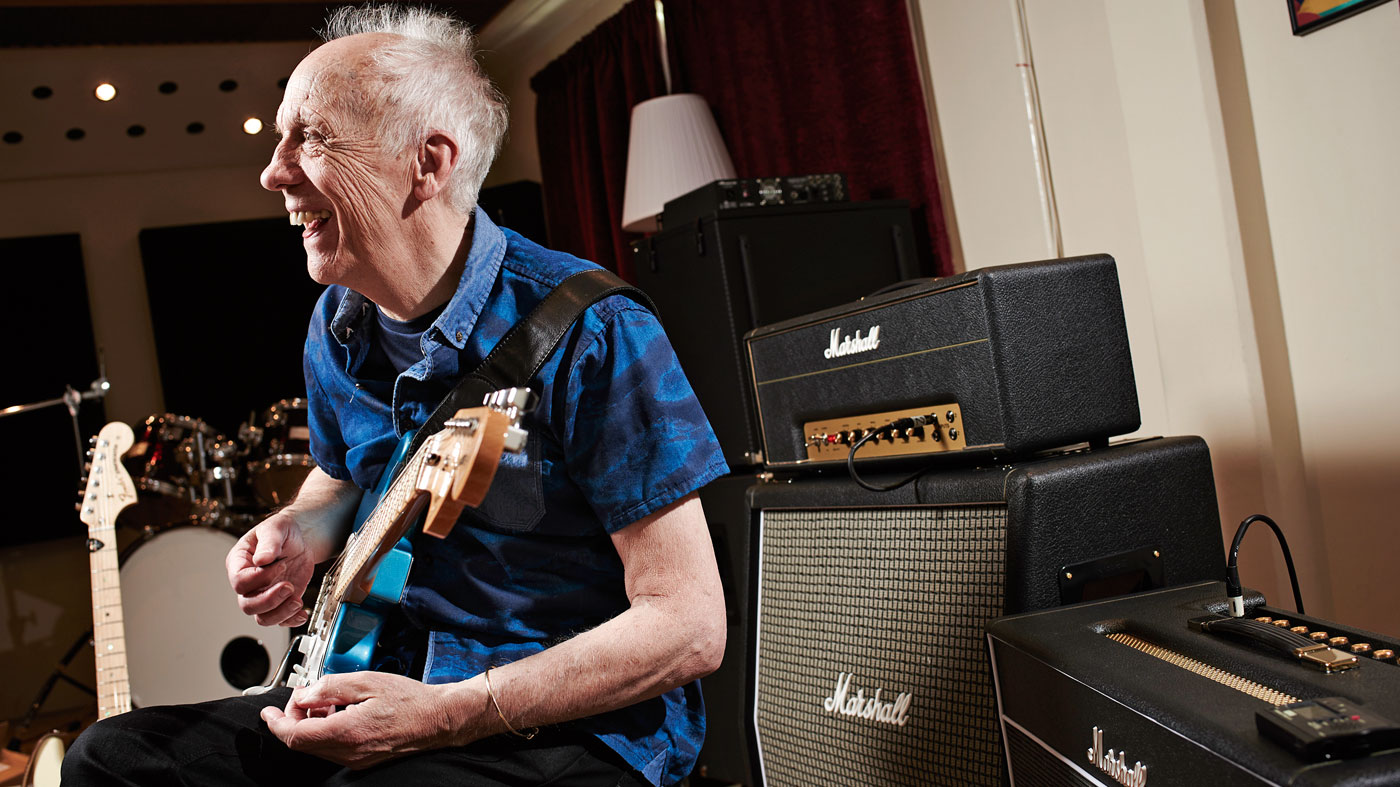
Staying in shape
Moving on to touring… It’s been pretty non-stop for you over the years. How has that changed since you started?
“I’m not sure it has changed at all. I mean, for me, I still go out to do exactly the same thing. Obviously, newer songs, but it’s the same approach completely. Guitar, bass, drums and vocals. Maybe I play quieter now [laughs]. That may be the big change, really.
I’ll stumble across ideas and the first thing is, ‘Do I want to play lead guitar to it?’ If I don’t, then I drop it
“I don’t play quite as loud… Well, still loud, but not deafening! When we play in America, it’s small theatres. Over here, it’s smaller places, because my name doesn’t draw as many people in Europe. There’s still work there, basically.
“I wouldn’t do it unless I enjoyed it. I like to keep on playing live, because I think it feeds a lot of energy into recording. It puts you in a place that you can’t get to if you were just recording in the studio. You have to raise your game to get up to the live level and I think that feeds back into the recording. You’ve got to be at your peak to be satisfied with what you’re doing live and that’s the thing.”
You’re currently working on some new material. How does the writing process begin for you?
“I try and pick up the guitar every day at home. Mostly to keep my callouses going, actually. But I’ll stumble across ideas and the first thing is, ‘Do I want to play lead guitar to it?’ If I don’t, then I drop it. But if it’s something I can really enjoy playing lead to I’ll carry on with it, work out the top line - the vocal - I won’t call it ‘melody’, because I don’t really go for melodies. From that, I try and come up with lyric ideas and once I get going on the lyric I’ll be at least three days on a lyric and I won’t work on anything else. It’s just that. Keep that going until I’m happy with it.”
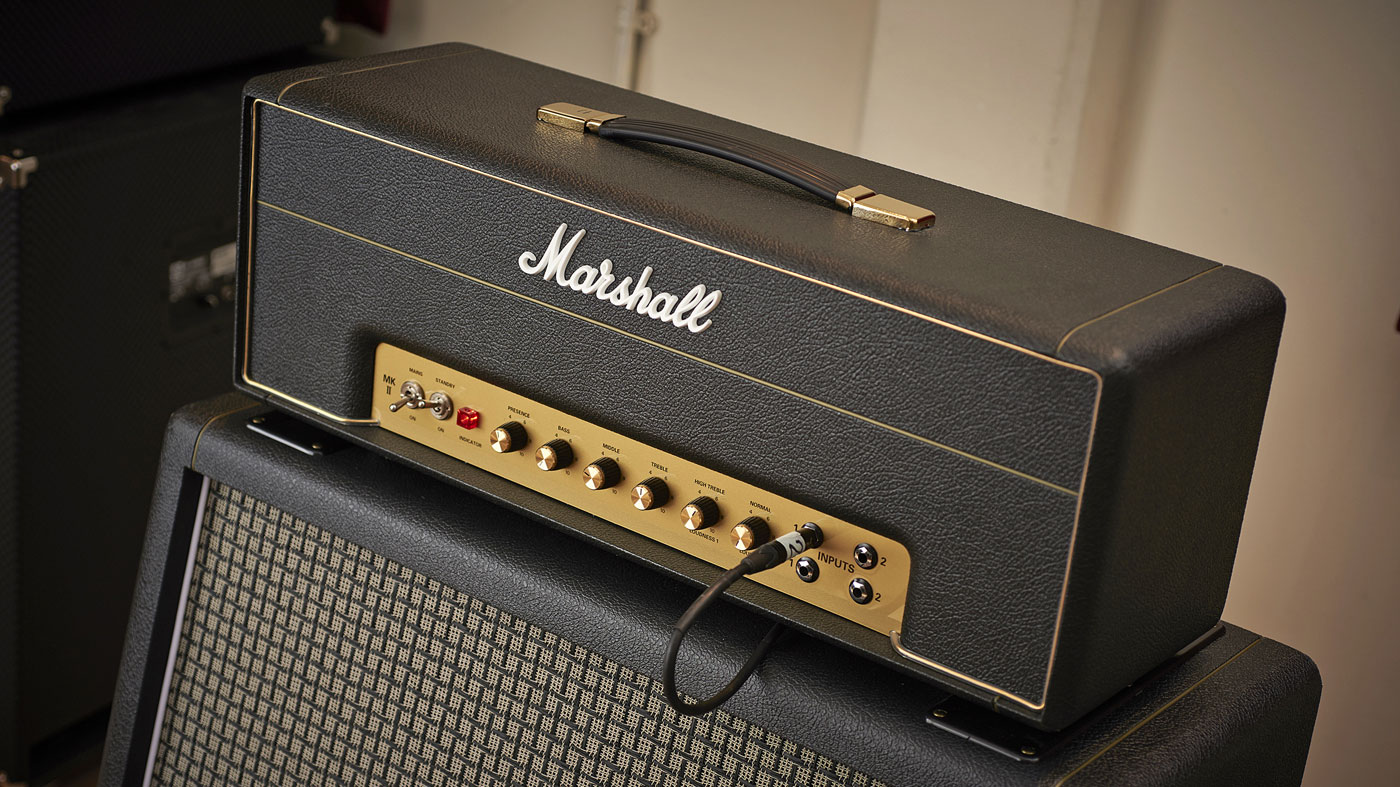
The human voice
And so when you get into the recording studio, do you then put down the guitar against a drum track?
“Yeah. I mean, all my songs are based on a guitar idea and I’ve got a good idea of what the drum beat should be, so I’ll put down a guide against a drum machine or a click track or whatever. I’ll probably do the bass then - try and get the bottom-end happening - and then I’ll redo the guitar and put a guide vocal on and build it up from there.
I think I’ve got a style now where I’m managing to get potency into every note. That’s what I’m always looking to try and do, anyway
“Once I’ve got quite a few of the ideas down, that’s when I’ll get the drummer in and get a drum track down. From there on in, it’s all finishing up, getting master takes of vocals and guitar. That’s when the real work starts, actually.”
You said earlier that you don’t think what you’re doing has effectively changed that much over the years, but you must have noticed some difference in your playing?
“Oh, yeah. I think I’ve got a style now where I’m managing to get potency into every note. That’s what I’m always looking to try and do, anyway, so every note has some sort of potency to it and I’m not just widdling about. I’ve sort of processed that out of my playing altogether.
“Now, every note’s got to be saying something. Every phrase has got to have feeling to it. Scotty Moore was a very big influence on me starting to play the guitar. He had a touch of genius about him, I think. He was absolutely brilliant, but that’s not the way I wanted to play - but I think that was the first time I was aware of the electric guitar.
“BB King was the first really big influence, that sort of bending vibrato, what I call a human voice style of playing. Then Albert King then Jimi Hendrix - those are the three big influences on what I went on to do. But there are other musicians like James Brown who’ve also been a huge, huge influence. His vocals are the most soulful thing you’re ever going to hear!”
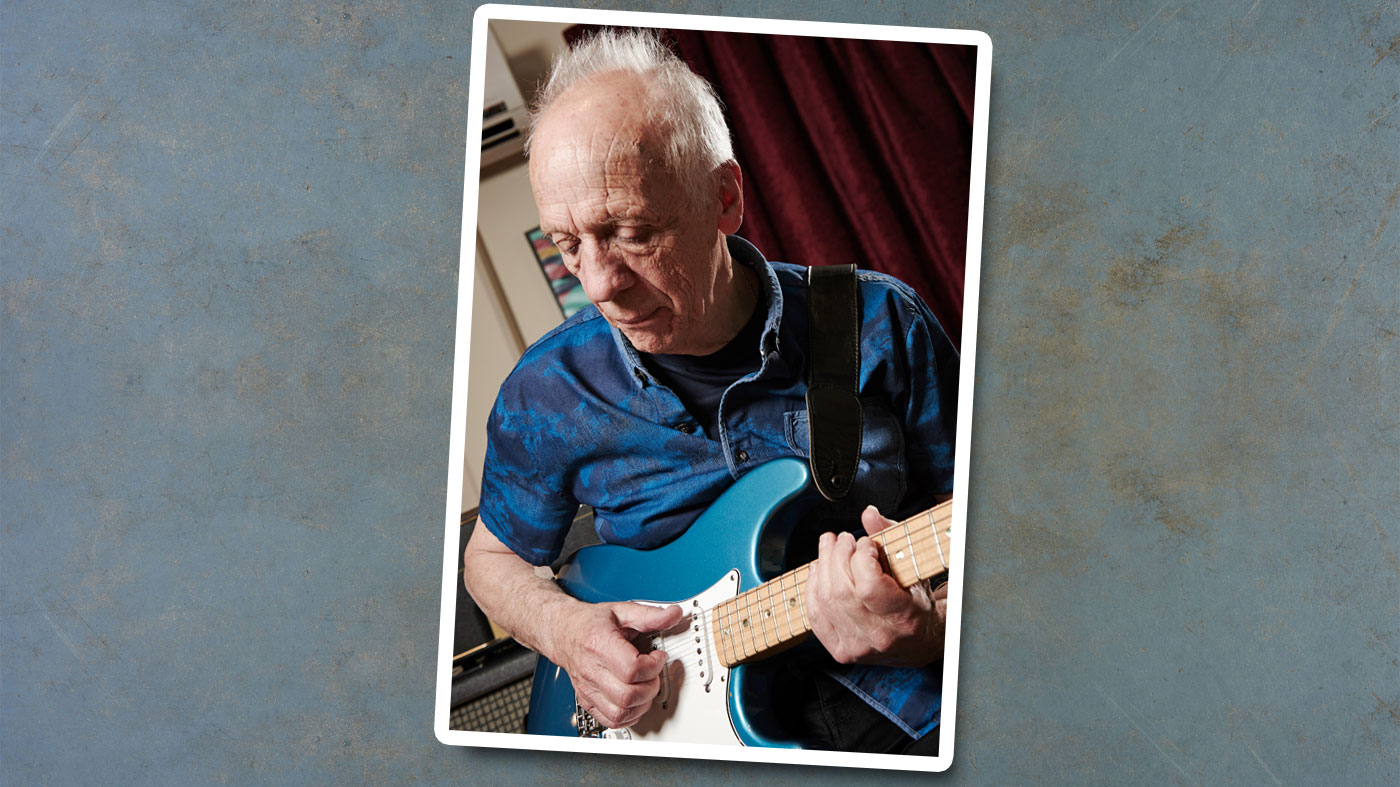
The next generation
What do you think of the new generation of guitarists, particularly blues players, who are coming up now?
There’s still a mystique about Howlin' Wolf, primal earthiness... You don’t get that from modern, later players
“I hear a lot of really good guitar players, there’s no doubt about it. But the music doesn’t do it for me, that’s the thing. There are some wonderful players out there, technically - really good players - but it’s the music… I think they’re doing what they want to do, but it’s not for me.
“For instance, Howlin’ Wolf is a big influence and he’s probably one of the few from the 60s that I still play. There’s still a mystique about it, primal earthiness - that’s what thrills me, that’s what I like. You don’t get that from modern, later players. I’m still listening to the same heroes I had in the 60s.”
Do you think that online learning facilities and YouTube have influenced modern music detrimentally?
“My advice to young players has always been not to copy anybody. You can be influenced by people and you can love their music, but I don’t sit down and work out other people’s licks, because I believe you’re shutting down your own creativity when you do that.
“I think maybe a lot of that goes on with young players. They want to be somewhere right away, so they sit down and they work out all these bits and pieces from other people instead of looking for what they’ve got inside them.”
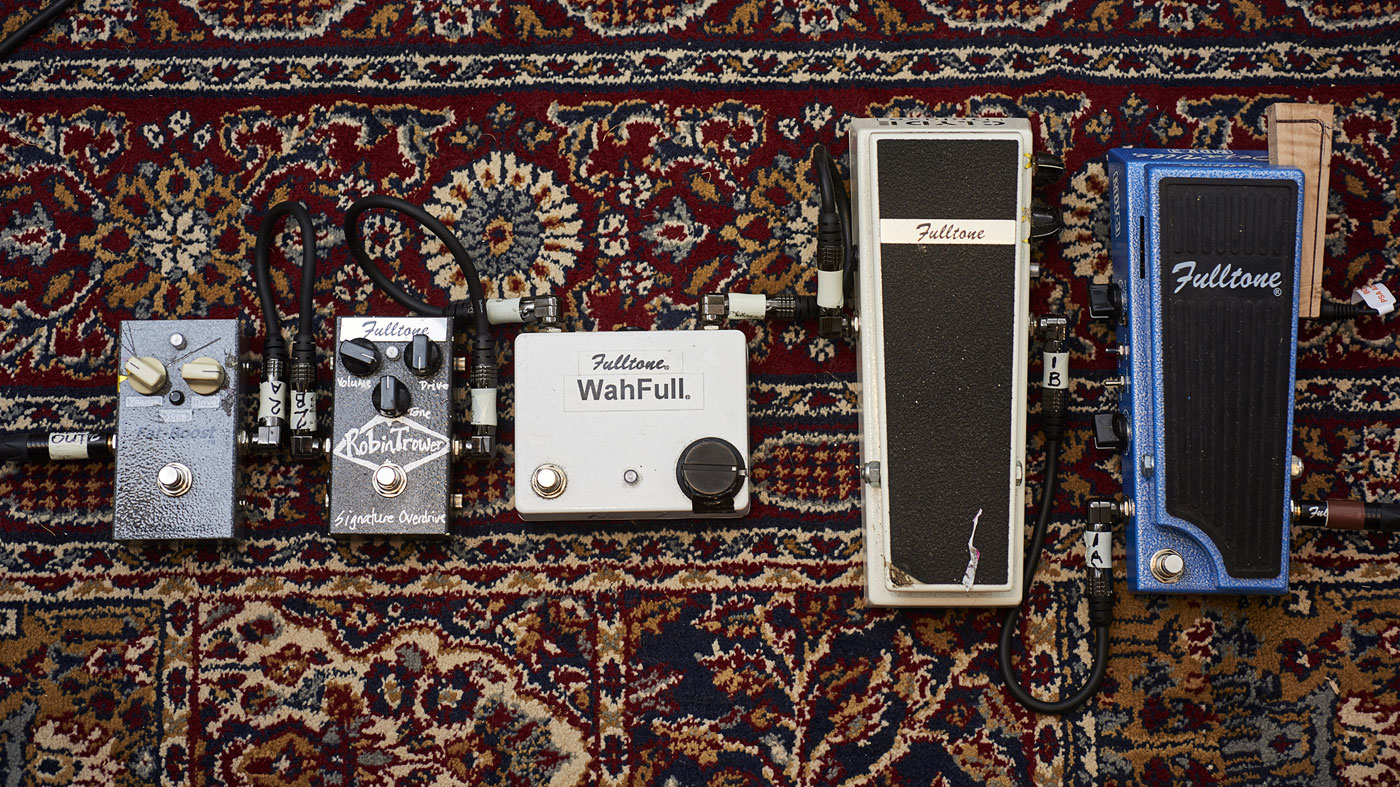
Robin's 'board
Fulltone FB-3
Fulltone’s FB-3 Fat Boost is a Class A FET pedal offering up to 35dB of clean gain
Fulltone Robin Trower Signature Overdrive
Robin’s signature Fulltone overdrive was developed in 2008 and is part of his huge live sound
Fulltone Wah Full
The Wah Full pedal can be set to sound like a wah‑wah locked in any position
Fulltone Clyde Deluxe
Fulltone’s Clyde Deluxe wah-wah pedal is featured on a lot of Robin’s classic material
Fulltone MDV-3
The MDV-3 gives the sound of Uni-Vibe modulation - note the piece of wood locking it in place!
Where You Are Going To is out now on Manhaton Records.

